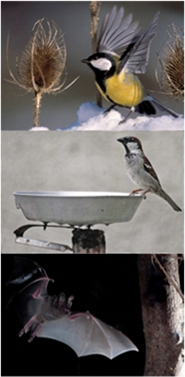Research
Research interests
The Laboratory of evolutionary ecophysiology primarily studies the physiological processes, which underlie the evolution of the life history traits and reproductive strategies that maximise the Darwinian fitness of animals.
In parallel, we work on a project aiming at determining the impact of neonicotinoid insecticides on insect biomass in agricultural ecosystems and on bird population dynamics.
More precisely, we investigate:
- the role of oxidative stress in the evolution of life history traits and life-history trade-offs;
- the role of oxidative stress in the development of alternative reproductive tactics and reproductive strategies;
- the role of sexual (testosterone) and stress (cortisol, corticosterone) hormones in the development of alternative reproductive tactics in relation to the redox status of individuals;
- the presence and distribution of neonicotinoid insecticides in the soils and vegetation of agricultural ecosystems;
- the impact of diffuse soil and vegetation contamination by neonicotinoids on insect biomass in agricultural ecosystems;
- the sublethal effects of neonicotinoids on the cognitive capacities and behaviours of birds;
- the bioaccumulation of neonicotinoids in peregrine falcons and their preys.


